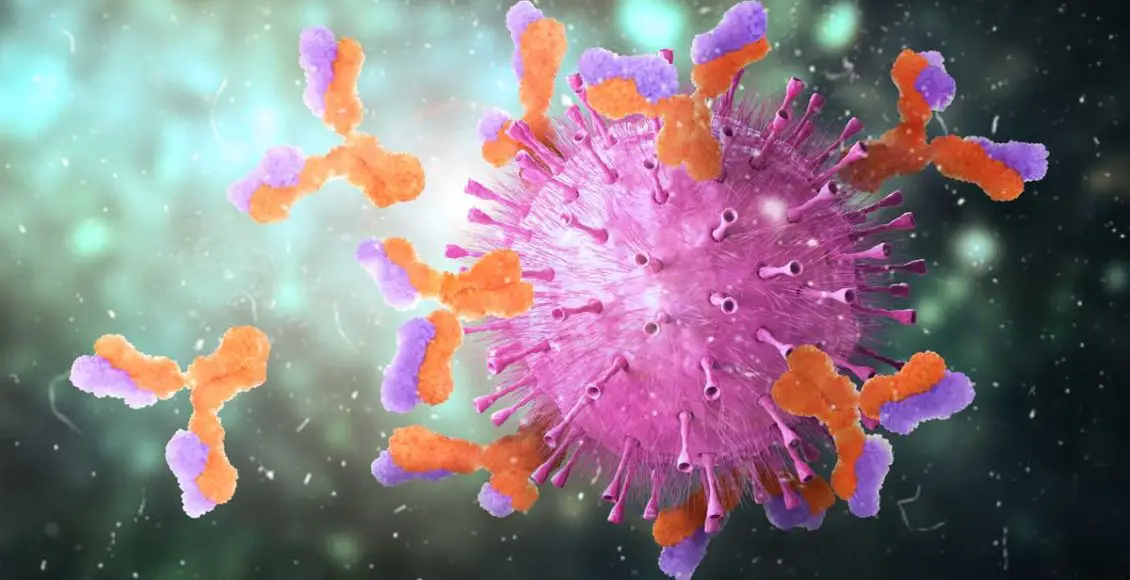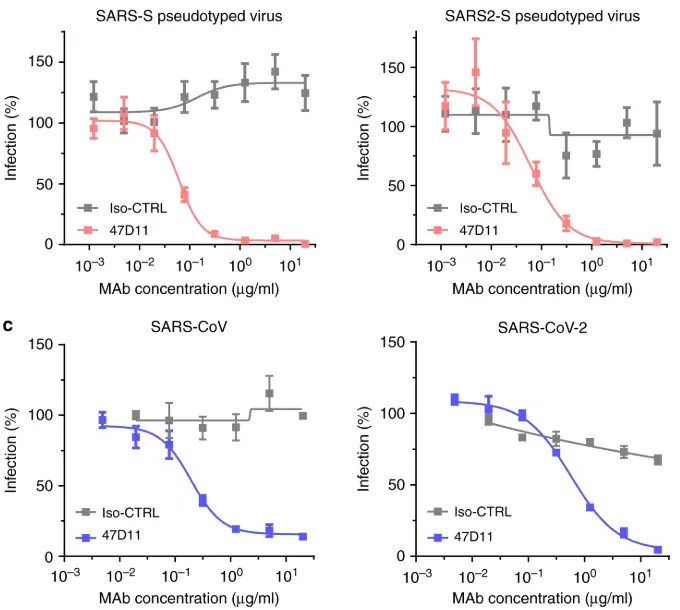Antibody that stops COVID-19 from infecting living cells was recently identified by scientists

An antibody that blocks SARS-CoV-2 infection was recently discovered by a group of European scientists.
The experts working on the discovery claim this antibody targets the virus’s notorious ‘spike protein’, which it uses to attach to the cells and insert its genetic material. While being tested on mice, the antibody, also known as 47D11, bound to the infamous protein and stopped it from hooking on the cells. This way, 47D11 effectively neutralizes it and prevents further infection.
According to the researchers, is the antibody is being injected into humans, it could change the ‘course of infection’, as Mail Online reveals. Moreover, they believe it could protect an uninfected person exposed to someone with the virus. The findings were published online in Nature Communications.
The antibody that allegedly blocks coronavirus was identified from 51 cell lines from mice that had been engineered to carry human genes.
What the European team of experts found was that 47D11 targets SARS-CoV-1, the coronavirus that caused the 2003 SARS outbreak. However, they also claim it can neutralize SARS-CoV-2, the current virus, too.

Professor Berend-Jan Bosch from Utrecht University in the Netherlands said:
“This research builds on the work our groups have done in the past on antibodies targeting the SARS-CoV that emerged in 2002/2003. Using this collection of SARS-CoV antibodies, we identified an antibody that also neutralizes infection of SARS-CoV-2 in cultured cells. Such a neutralizing antibody has potential to alter the course of infection in the infected host, support virus clearance, or protect an uninfected individual that is exposed to the virus.”
Dr. Bosch, who is also a co-author of the study, noted that since the antibody can neutralize both strains of SARS-CoV, it may have potential in mitigation of diseases caused by future emerging similar viruses.
This breakthrough gives the world hope of a possible COVID-19 treatment. Tragically, coronavirus has taken the lives of more than 250,000 people to date.
In the process, the group of experts injected mouse cells with a variety of spike proteins of several coronaviruses. They also tested SARS(Severe Acute Respiratory Syndrome) and MERS(Middle East Respiratory Syndrome). The mice involved in the study were injected with spike proteins of coronaviruses that cause SARS, MERS, and the common cold. However, they were not injected with SARS-CoV2, the cause of COVID-19.
Dr. Simon Clarke, professor of Cellular Microbiology at the UK University of Reading, said:
“The researchers in this study have developed an antibody that binds to the spike and blocks virus entry into cells. Antibodies like this can be made in the lab instead of purified from people’s blood and could conceivably be used as a treatment for the disease, but this has not yet been demonstrated. While it’s an interesting development, injecting people with antibodies is not without risk and it would need to undergo proper clinical trials.”
In the study, scientists also worked on cells outside the mice, known as ‘in vitro’, rather than in a live organism, a process known as ‘in vivo’.
Dr. Penny Ward, Visiting Professor in Pharmaceutical Medicine at Kings College London stated:
“There are several animal models of COVID-19 infection and without having results from any in vivo studies, it is not possible to conclude that the product will be effective in vivo in humans. This potential would be greatly enhanced if the antiviral effect was observed in an animal model.”
The 47D11 antibody was generated with the help of the US biotechnology company Harbour BioMed and their H2L2 transgenic mouse technology. Dr. Jingsong Wang, the company’s CEO, admits that there’s still a lot to be done until assessing whether this antibody has the potential to protect or reduce the effect of coronavirus in humans. He adds:
“We expect to advance development of the antibody with partners. We believe our technology can contribute to addressing this most urgent public health need and we are pursuing several other research avenues.”


